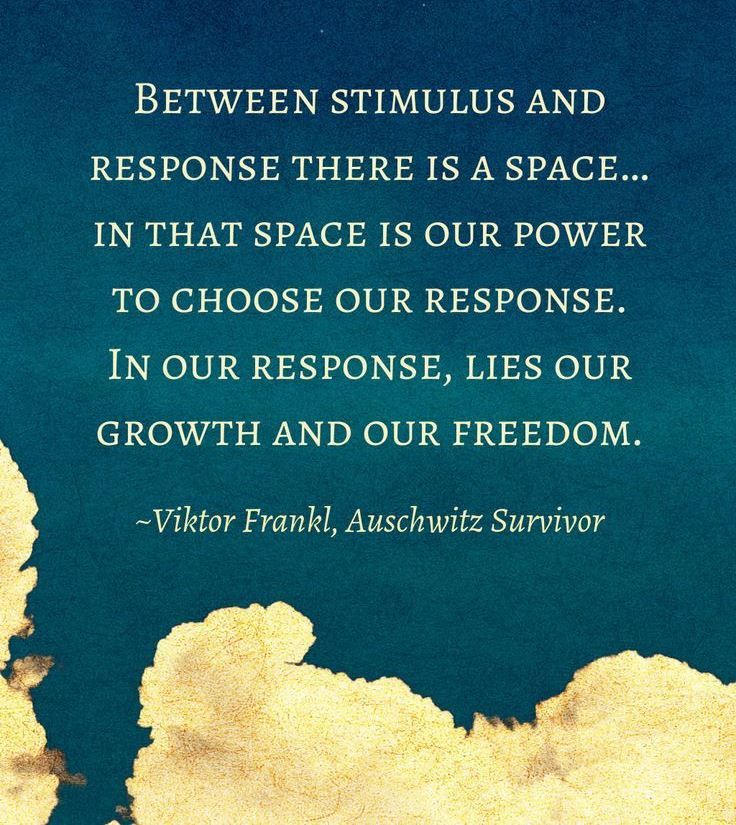One topic that seems to keep coming up in recent weeks has been compassion. It is something that we would all benefit from giving more of to ourselves and to those around us. When Mindfulness Monday last covered this, we discussed the work of psychologist Kristin Neff, who studies compassion. She tells us “Self-compassion involves acting the same way towards yourself when you are having a difficult time, fail, or notice something you don’t like about yourself as you would act toward other under the same circumstances. Instead of just ignoring your pain with a “stiff upper lip” mentality, you stop to tell yourself “this is really difficult right now,” how can I comfort and care for myself in this moment?”
Category: New Best Of
New Best Of
Mindfulness Monday: Chaos
Today, we will reflect on practicing mindfulness while living in chaotic times. Right now, the United States finds itself still grappling with COVID-19 and its far reaching impact on daily life, from education to elections and beyond. To describe this as chaotic at times would be an understatement. The mindfulness exercise for today was written earlier in the pandemic, when so many things were still freshly turned upside down, but many of those usual reference points that we took for granted remain disrupted and so we would all do well to find ways to remain steady in these challenging moments.
Mindfulness Monday: RAIN Technique
Austrian neurologist, psychiatrist, and Holocaust survivor Viktor Frankl said “Between stimulus and response there is a space. In that space is our power to choose our response. In our response lies our growth and our freedom.” This concept is at the heart of the RAIN technique for managing distress. Philippe R. Goldin, Ph.D. is associate professor at the Betty Irene Moore School of Nursing at UC Davis, where he teaches, conducts research and mentors students in the areas of health promotion, clinical psychology and cognitive-affective neuroscience and has contributed greatly to literature highlighting the efficacy of this approach. You can follow along with the below video, and details are available below the video.
R = Recognize. Recognize the emotions or thoughts that are troubling you. Notice them without judgment. Naming them can also help shrink them to manageable size: “Story of how my friends will all desert me.” “Worry about my son again.” “Despising self for how I acted.” Just noticing and naming the passing parade of your thoughts, feelings, and sensations can provide some immediate relief. “Oh, so that’s what’s on my mind.” You may even notice that your painful feelings disappear after a while. “This too shall pass” can become words to live by.
A = Acknowledge, Accept, Allow. The next step is to acknowledge your distress and accept it as your present reality. Accepting the pattern does not mean you like it; it only means that you are able to put these unpleasant mental contents front and center, rather than allowing them to strum unconsciously under the surface of your mind. You might say to yourself, for example, “Yes, I’m worried about money again.”
I = Inquire, Investigate. At this stage of the process, you can use your natural curiosity to delve more deeply into your distress. You can ask yourself: What triggered this current bout of distress? When have I felt this way before? What thoughts, feelings, and sensations are connected to these feelings? How realistic is my thinking? Are there actions I could take to help myself or another person? What do I need?
N = Non-identification. Your painful thoughts, feelings, and sensations are not you. Instead of identifying with them, you can mentally “step to the side” and watch them scroll by like a newsfeed.
S = Self-compassion. Self-compassion means offering yourself some friendliness, generosity, and sympathy. It is not self-pity; rather, it is a recognition and acceptance of your humanness, your imperfection, and your suffering. It is empathizing with yourself the way you might for your best friend or love partner. You might say to yourself, “It’s hard for you when you feel so self-critical,” for example. In her book, Radical Acceptance, Tara Brach puts it this way: “Instead of resisting our feelings of fear or grief, we embrace our pain with the kindness of a mother holding her child.” (Note: Brach updated the RAIN meditation acronym in 2019 in her new book, Radical Compassion. In her revised acronym, the “N” of RAIN has become “Nurture.”)
Mindfulness Monday: Just Be
Every Monday, the Daily Dose is dedicated to starting your week right with a brief guided mindfulness exercise. For many of us, life was harried prior to COVID and now has only become more so. Running from responsibility to responsibility, it easy to sometimes just stop, be, and be grateful for our mere existence. Today, Dr. Erin Lohman of Wichita State guides us through a mindfulness exercise to address this, wherein we simply sit and observe, bringing ourselves back in contact with what is here and now. Enjoy, and be well!
Mindfulness Mondays – Mindfulness for Difficult Emotions
Every Monday, the Daily Dose is dedicated to starting your week right with a brief guided mindfulness exercise. This week’s exercise once again comes to us from Dr. Philip Fizur of Cooper Behavioral Medicine. This week he invites us to consider turning toward, and not away from, difficult emotions and provides a skillful approach to doing so.






